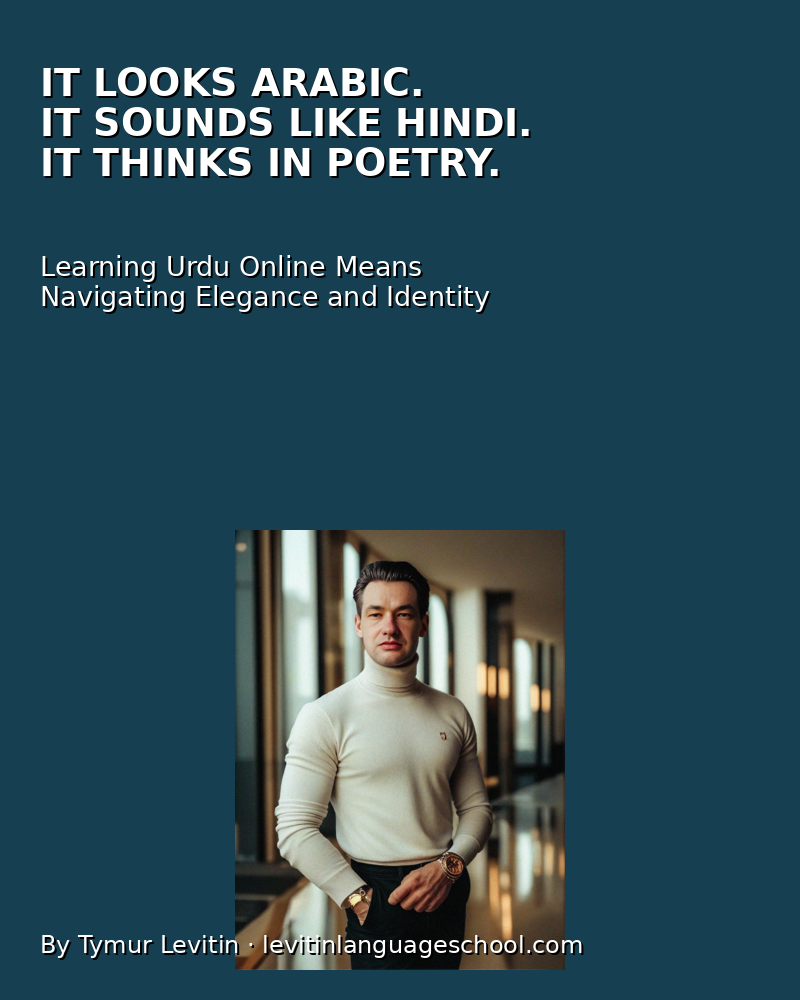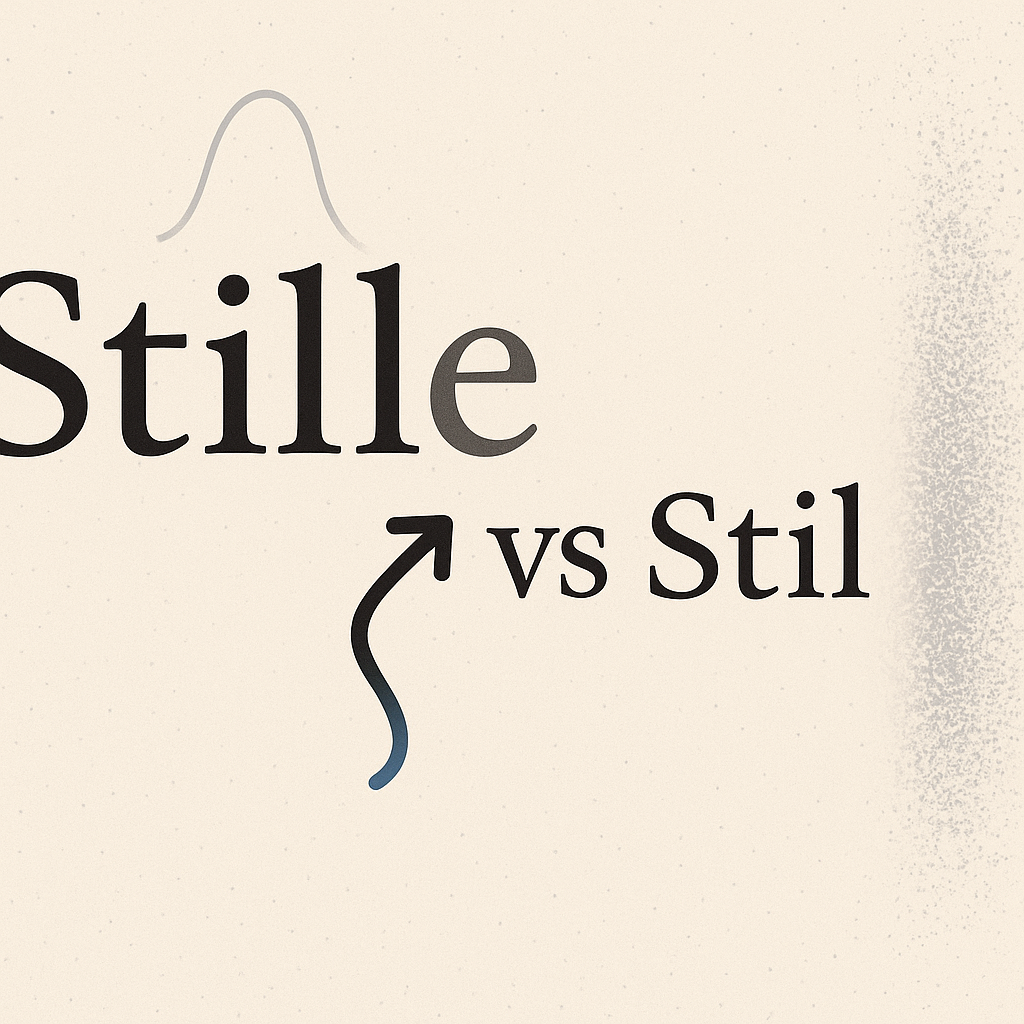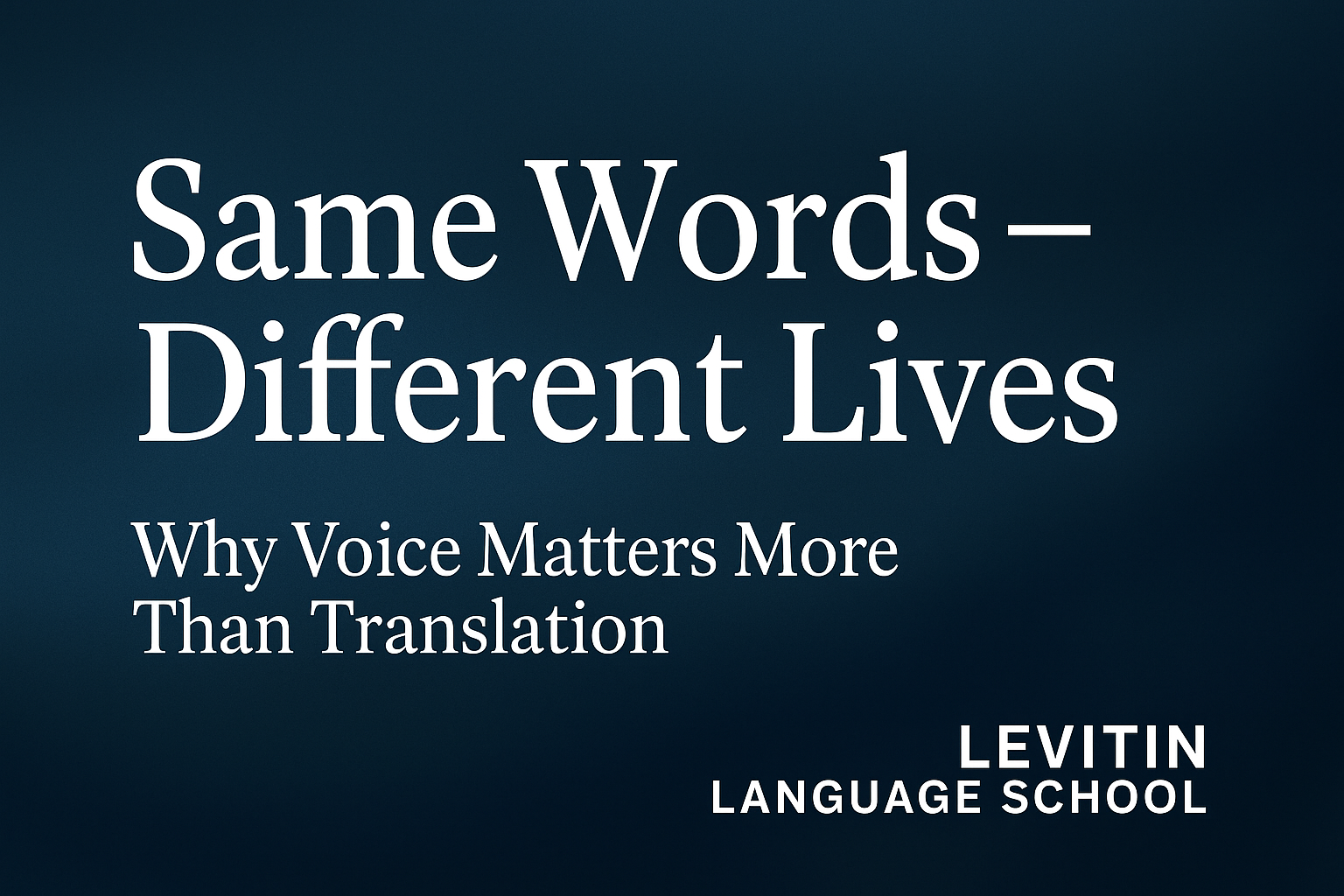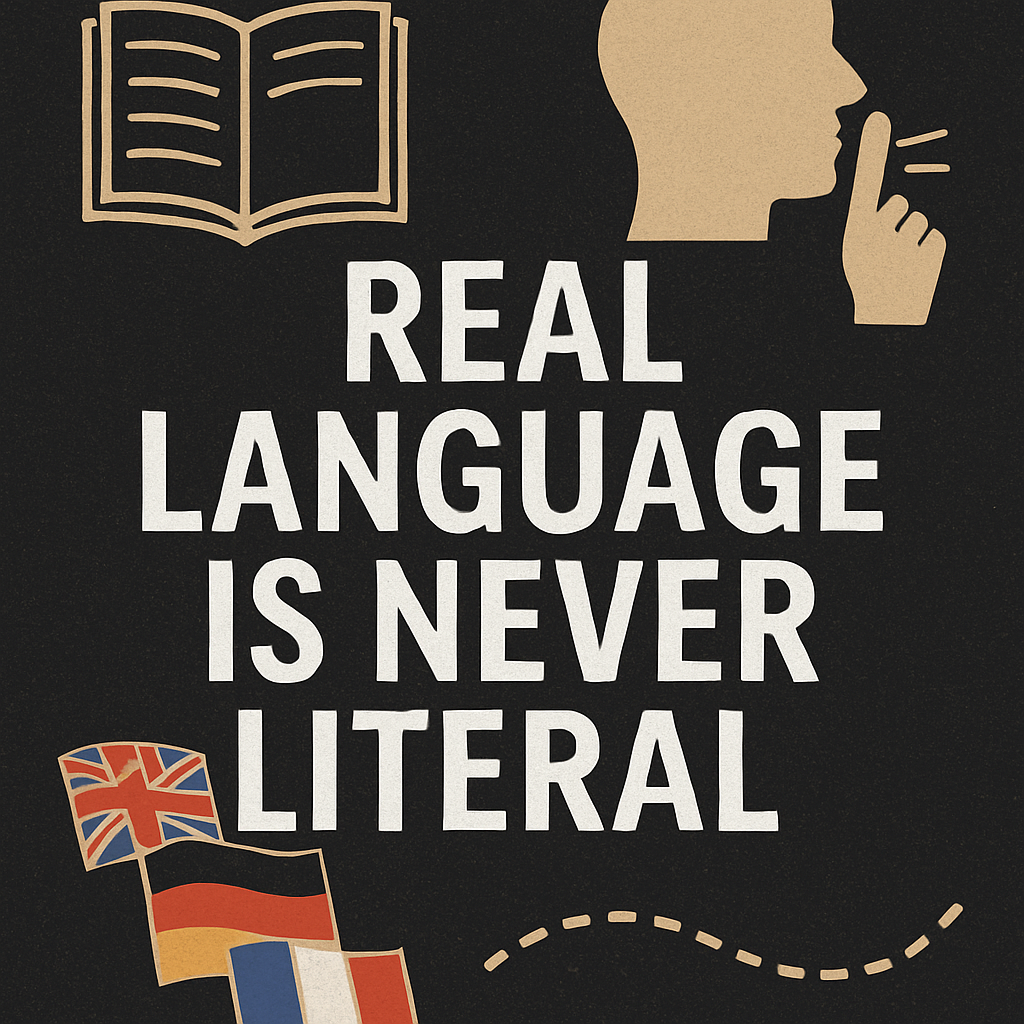A real story about sound, culture, and what words really mean
🪧 Wybierz język: levitinlanguageschool.com/#languages
Words can be dangerous — even when they’re correct
In German, a tiny vowel can carry a world of difference.
One student — a thoughtful, curious young man from Honduras — discovered this the hard way.
We were practicing spoken German, and I asked:
“What comes to your mind when you hear the word Stille?”
He paused. “Style,” he said. “Like fashion or personality.”
But I hadn’t said Stil.
I had said Stille. With an -e at the end.
He had missed it.
And what he thought was style… was actually silence.
In fast speech, endings disappear
This wasn’t a vocabulary mistake.
It wasn’t a grammar mistake.
It wasn’t even a cultural one — not yet.
It was a phonetic trap.
In spoken German, especially in casual speech, the final -e in words like Stille is often softened or dropped.
Stille sounds like Stil -
especially when said quickly or without emphasis.
That moment of mishearing triggered a complete misunderstanding.
And it revealed something deeper:
🔍 Words don’t just carry definitions. They carry codes.
Silence isn’t the same in every culture
When I explained what Stille really meant — he blinked.
“You mean like… not talking?”
Yes. But also… no.
In his culture, silence meant:
Absence. Disengagement. Nothing.
But in German (and many other languages), Stille can mean:
peace, reverence, grief, anticipation, distance — even power.
In Slavic cultures, silence may imply tension, coldness, or obedience.
In English, silence often just means “no talking” — but sometimes “being ignored.”
In Japanese, silence can signal respect.
In German, Stille often feels like a pause that matters.
So when a word like Stille is misheard as Stil — the whole emotional message disappears.
And what about Stil?
My student had originally guessed “style” — and he wasn’t wrong.
But what style means also depends on where you are.
| Language | Word | Primary Associations |
|---|---|---|
| Niemiecki | Stil | writing style, visual form, personal tone |
| Angielski | style | fashion, brand, creative design |
| Hiszpański | estilo | attitude, public image, genre |
| Russian/Ukrainian | стиль / стиль | manner of speaking, writing, or behavior |
So even if he’d guessed correctly — he’d still be in danger of misunderstanding.
Because Stil in German isn’t estilo in Spanish.
And Stille isn’t just “silencio.”
It’s something else.
Real meaning is never just pronunciation
This student wasn’t careless. He was attentive, motivated, thoughtful.
But here’s the problem:
Even fluent students can mishear — not because their ears fail, but because their minds assume a familiar meaning.
Another student once said something similar during a job interview:
“They told me I speak too slowly. But I always speak that way — even in my native language.”
It wasn’t about language proficiency. It was his style.
But none of the textbook phrases helped him explain that nuance.
We found a way together — but it took time.
Because expressing identity in another language isn’t just about co you say —
Chodzi o jak it’s heard.
Why this matters
We’re preparing a separate article about how fluent speech often hides endings — and how that can change meaning entirely.
But this case showed something bigger:
- Sound matters.
- Culture matters.
- And silence… is never just empty space.
So next time someone misunderstands you —
ask yourself:
Did they hear the word?
Or did they hear the world behind it?
Because in language, there’s always more than meets the ear.
📘 Author’s Column — The Language I Live
Language. Identity. Choice. Meaning.
✍️ Tymur Levitin — founder, teacher, translator
🔗 Wybierz język






















